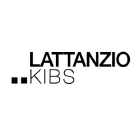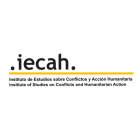WORKING WITH DG ECHO AS AN NGO PARTNER | 2021 - 2027
END OF ACTION
REMAINING SUPPLIES | DEPRECIATION
If the vehicle does not have an economic value anymore, the Partner is free to decide how to use it. Therefore, it can also decide to sell it, and DG ECHO’s prior approval is not required.
REMAINING SUPPLIES | DEPRECIATION
The assessment of the residual economic value will be done at the end of the Action, when the partner will have to decide on the end use of the equipment fully charged to the Action. To calculate this value, the partner has to simulate the depreciation costs of the equipment as if it was proposed for a depreciation from the date of its purchase until the end of the Action. This remains the same even if the equipment was used by an Implementing Partner .
Transfer to another DG ECHO funded Action is only possible if the original Action is implemented by the Partner who intends to transfer the remaining goods. This rule allows DG ECHO to have a direct control over the end use of the goods and safeguard sound financial management of humanitarian aid funds.
Transfer to a DG ECHO funded action implemented by another partner is possible.
Goods may be transferred only once. This means that goods must be fully consumed by the next action they are transferred to. If transfer to another ongoing action is not possible, the beneficiaries can — after the end of the action — transfer the equipment or goods to the final recipients, local non-profit organisations, international non-profit organisations, international organisations, or local authorities, if agreed by the granting authority. To be noted that. under the MGA the distinction between donation and transfer do not exist anymore. More detailed guidance is available in the AGA – Annex 5.
The calculation is done on the quantity of the goods purchased during the Action, per type of goods (e.g drugs, food, NFI kits.).
If at the end of the action the Partner has remaining goods in a quantity lower than 20% the Partner does not have to report to DG ECHO the final destination of the mentioned goods. However, if the quantity of the remaining goods at the end of the action is above the 20% threshold the Partner has to take the following steps in order: 1. Request a no-cost-extension; 2. Transfer them to another DG ECHO funded action; 3. Transfer them to the final recipients, local non-profit organisations, international non-profit organisations, international organisations, or local authorities upon agreement of DG ECHO.
Under no circumstances, in case of remaining goods exceeding the 20% threshold the Partner can keep the goods up to the 20%. This threshold of 20%, under the previous FPA2014 set at 5%, is intended as an upper limit and defines the ceiling for considering remaining goods as ‘marginal quantity’. If the 20% threshold is exceeded the quantity of remaining goods cannot be considered as ‘marginal’ and the steps mentioned above and further detailed in the AGA – Annex 5 must be followed.
It has to be noted that eligibility rules laid down in article 6.1 MGA continue to apply, according to which costs to be eligible must be (among others): (iv) necessary for the implementation of the Action; vii) reasonable, justified and must comply with the principle of sound financial management. Therefore, it is for the Partner to ensure that the procurement of the goods has been properly planned to avoid over-procurement; practice that DG ECHO does not intent to encourage by covering the related costs.




